

Last updated on

During the 20th annual MozCon, Britney Muller, the Founder of Data Sci 101, presented a thought-provoking talk on AI’s influence on digital marketing.
Titled “Unveiling AI: Essential Insights for Marketers,” her presentation delved into the present and future capabilities of AI.
Muller explored ethical dilemmas, real-world uses, and boundaries of AI, furnishing marketers with crucial advice.
Muller commenced her discourse by delving into the ascent of generative AI, positioned at the nexus of AI, machine learning, deep learning, and natural language processing (NLP).
She elaborated:
“Generative AI, specifically, stems from this fascinating convergence of disciplines.
We have AI housing machine learning. Within machine learning, there exists deep learning. And then, human language intertwines with NLP or natural language processing.”

A substantial segment of Muller’s presentation centered on the pivotal role of training data in AI models.
She stressed:
“I used to iterate that AI mirrors its training data, and I stand firm. It amplifies its training data.”
Muller underscored the dearth of diversity in datasets such as Wikipedia, where contributors predominantly skew male, and how this can perpetuate biases in AI outcomes.
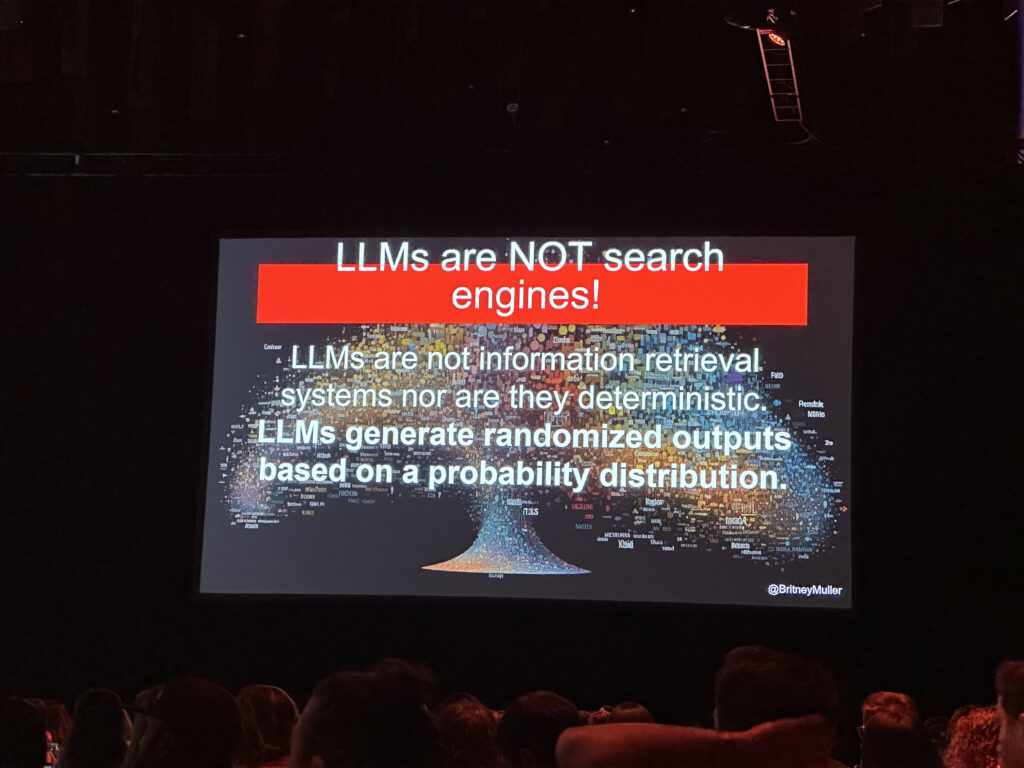
Muller elucidated a broad spectrum of practical AI applications in marketing, as depicted in one of her presentation slides.
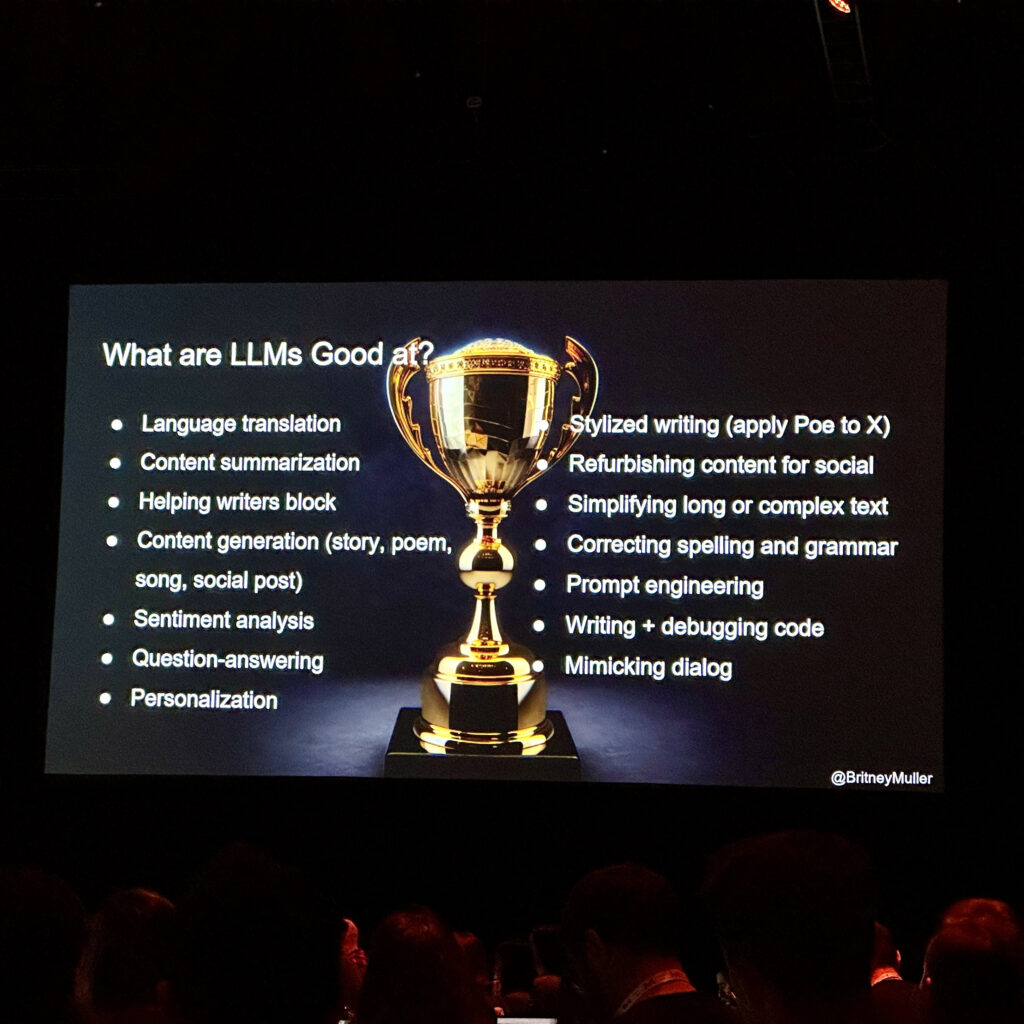
She expounded:
“Large Language Models (LLMs), in general, excel at various tasks, and I hold the unpopular opinion that content generation is among their weaker capabilities. They excel more in sentiment analysis, categorizing items, and providing code assistance.”
Furthermore, she showcased a slide spotlighting specific applications of Generative AI in SEO and marketing, including:
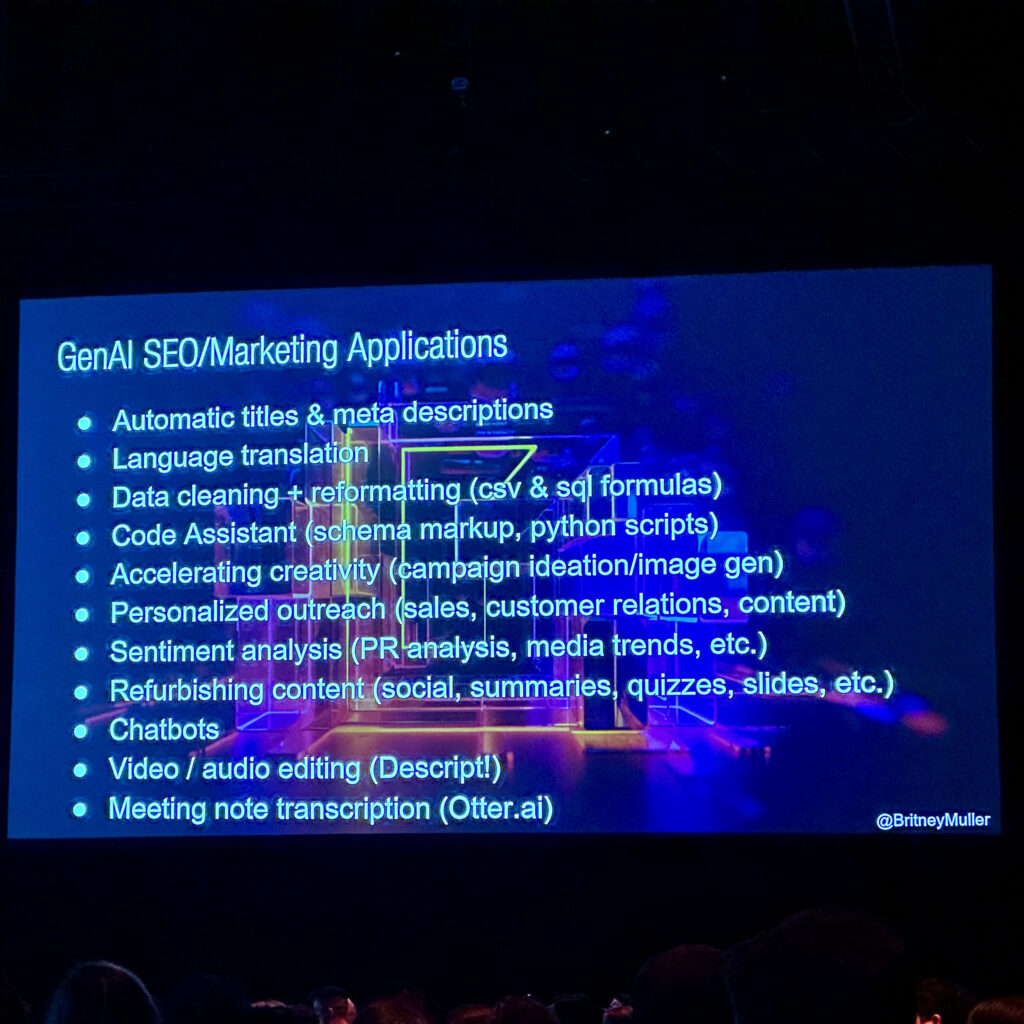
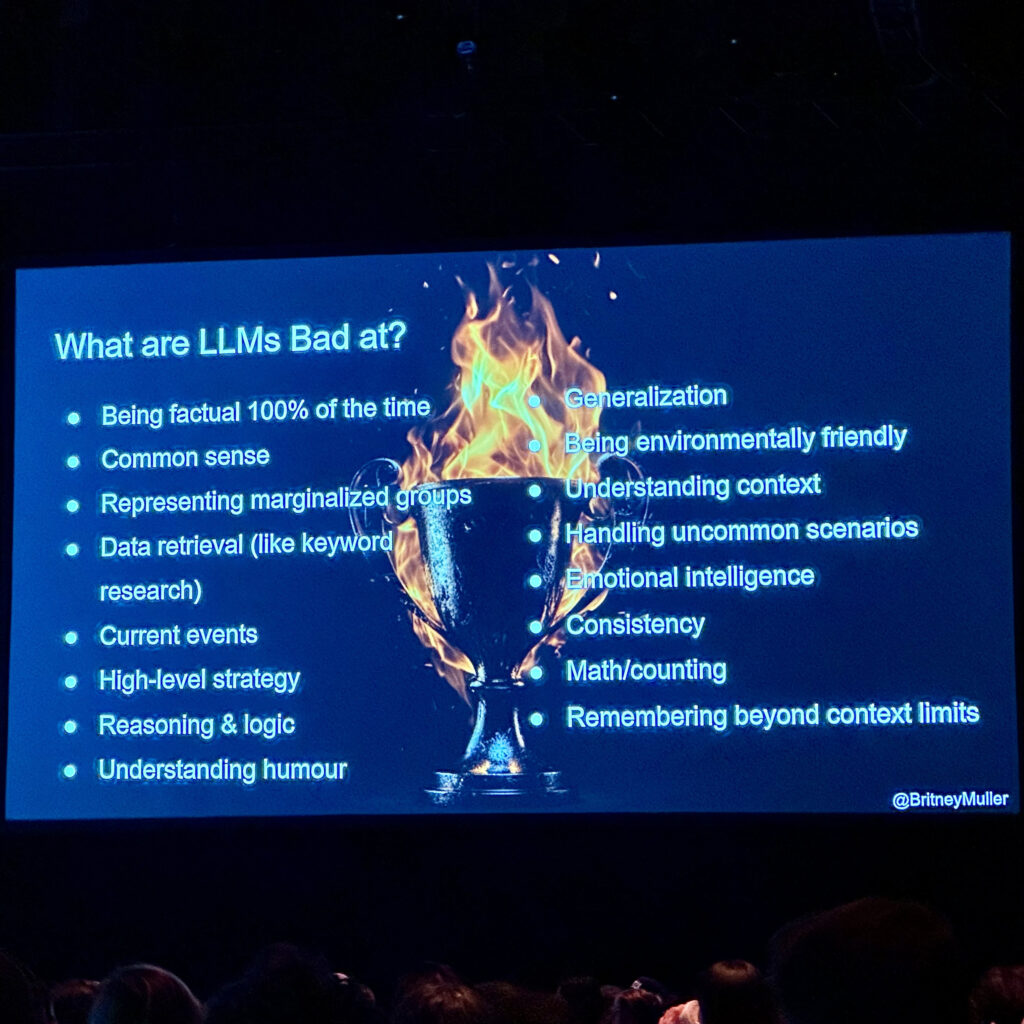
Muller delved into the constraints of Large Language Models (LLMs), which face challenges in tasks necessitating:
Marketers ought to acknowledge these strengths and limitations when integrating AI into their strategies.
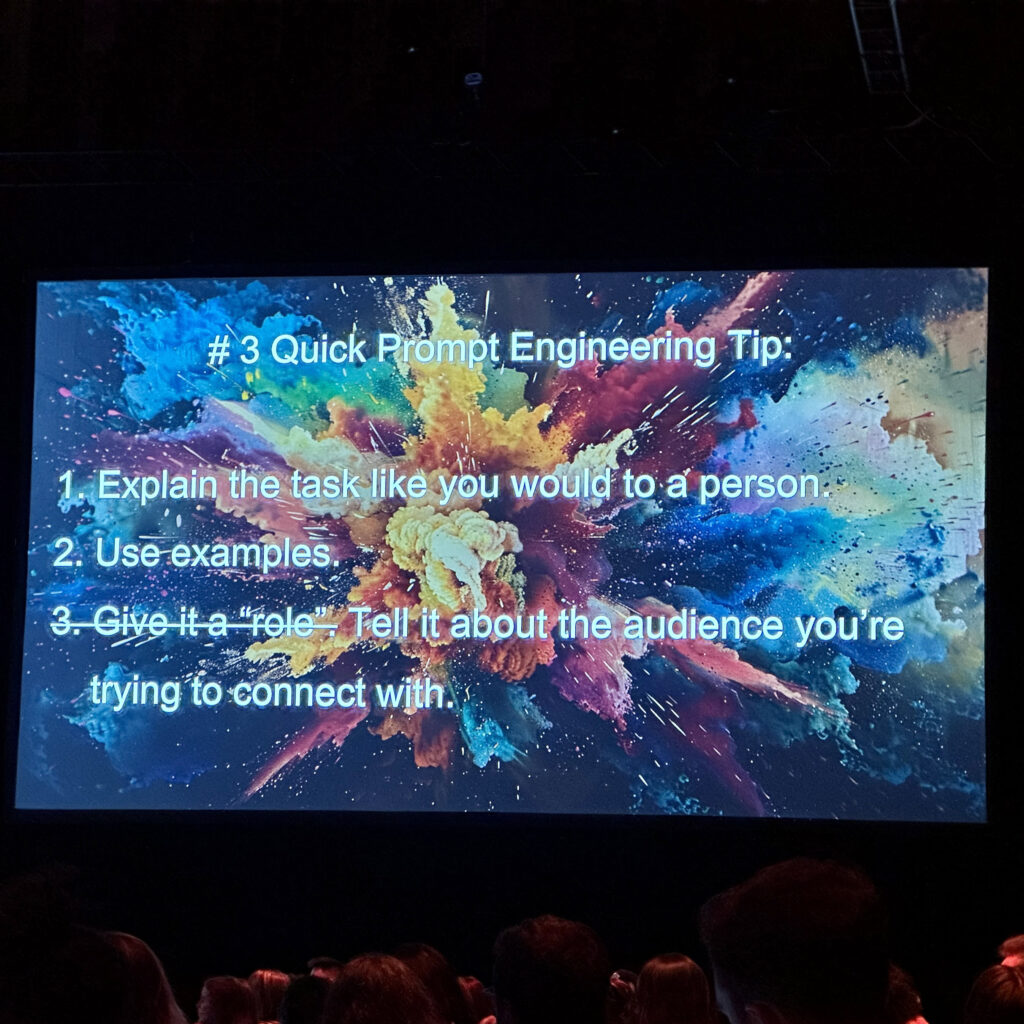
Muller offered actionable insights to assist marketers in harnessing the power of generative AI. She provided three key tips for prompt engineering:
Muller emphasized the effectiveness of these strategies, stating, “There’s been extensive research on prompt engineering, highlighting what works and what doesn’t. The fundamental lesson learned is the importance of examples. By presenting the model with clear examples of desired output, we guide its understanding of what constitutes ‘good’ or ‘bad’.”
Additionally, Muller showcased a slide featuring various generative AI tools and resources, including Colab, Kaggle, GPT for Sheets, Ollama, WordCrafter.ai, and her own platform, DataSci101.com.
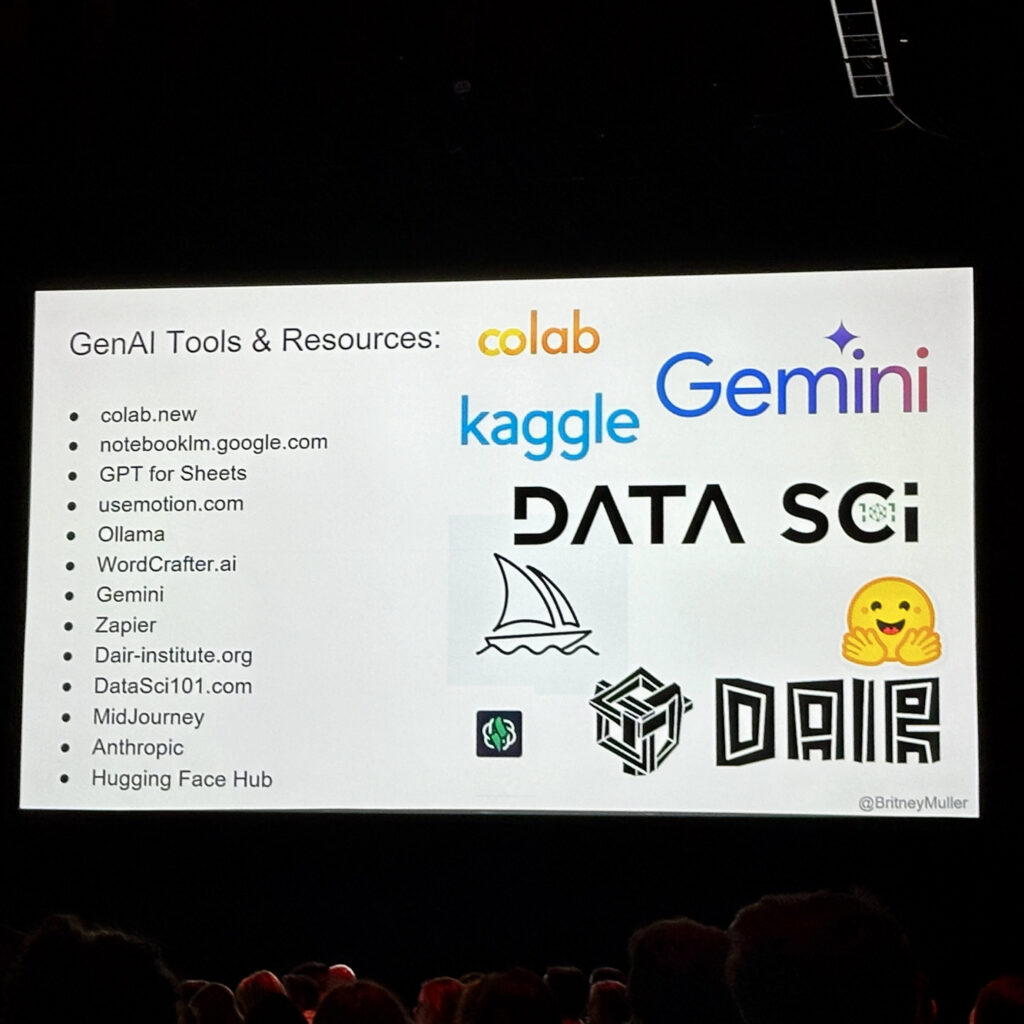
In her closing remarks, Muller encapsulated several crucial insights in her concluding slide, underlining the importance of a human-centric approach to AI.
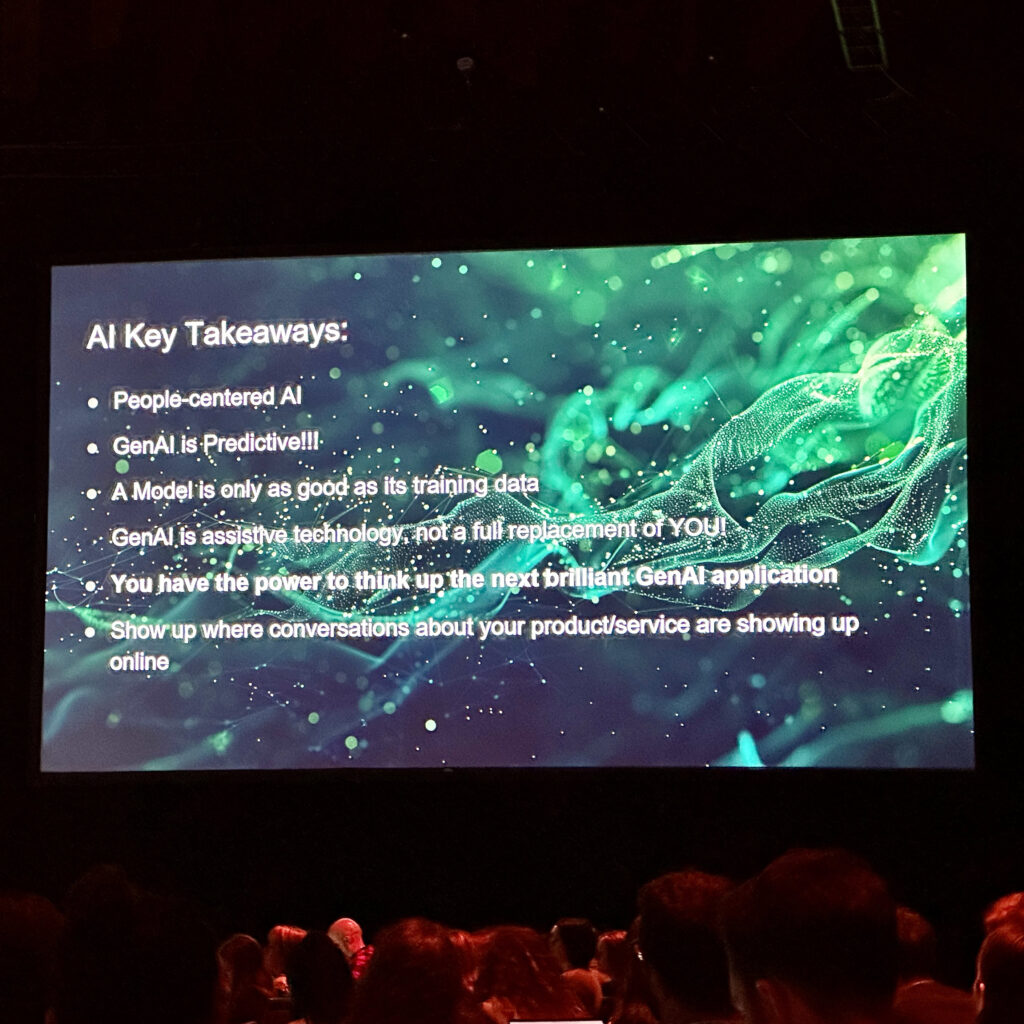
She emphasized AI’s role as an augmentative tool rather than a complete substitute for human ingenuity. The key takeaways were:
Muller articulated, “We must prioritize discussions around people-centered AI. It’s imperative to consider which model best supports the individuals we collaborate with. Remember, this technology is predictive in nature. Its effectiveness is contingent upon the quality of its training data. It’s meant to assist, not replace, human input and expertise.”
Muller’s insights offer a valuable compass for navigating the intricate landscape of AI. Emphasizing AI as an assistive tool rather than a substitute for human skill, she consistently reinforced the importance of maintaining a human-centric approach.
Her guidance urged marketers to discern tasks where AI can expedite or automate processes while preserving human involvement. Muller’s overarching message to marketers underscores the significance of ethical conduct, prioritizing human welfare, and leveraging AI’s capabilities while acknowledging its limitations.
Original news from SearchEngineJournal